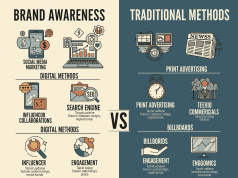In the fast-evolving landscape of digital marketing, 2025 is shaping up to be a pivotal year for social commerce. As consumers become increasingly integrated into social media ecosystems, brands are leveraging these platforms to drive sales and deepen customer relationships. Social commerce, defined as the process of using social media platforms to facilitate buying and selling, is not just an emerging trend; it’s a fundamental shift in how businesses engage with customers.
The Rise of Social Commerce
In recent years, social media has transcended its original purpose of connectivity. Platforms like Instagram, Facebook, TikTok, and Pinterest now serve as bustling marketplaces where brands can showcase their products and consumers can shop seamlessly. According to recent statistics, social commerce sales are projected to reach over $600 billion by 2027, highlighting the sector’s exponential growth.
Why Social Commerce Matters
1. Enhanced Customer Experience
Social commerce enables a more engaging shopping experience. Features like shoppable posts, live streams, and augmented reality tools allow businesses to create immersive experiences that mimic in-store shopping. This level of interactivity caters to today’s consumer, who desires immediacy and convenience.
2. Building Trust and Authenticity
Consumers often rely on peer reviews and user-generated content when making purchasing decisions. Social media platforms naturally facilitate this by allowing users to share their experiences and opinions. Brands that effectively harness this user-generated content can build trust and credibility, making social commerce a powerful tool for conversions.
3. Targeted Marketing
Social media platforms offer sophisticated algorithms that can deliver targeted advertising based on user behavior and preferences. This allows brands to tailor their marketing strategies to specific audiences, maximizing their ROI. The integration of shopping features makes it easier for businesses to convert interested users directly within the platform.
Strategies for Success in Social Commerce
1. Leverage Influencer Partnerships
Influencer marketing continues to thrive in 2025. Partnering with relevant influencers allows brands to reach wider audiences while benefiting from the influencer’s established trust and authority. Brands should prioritize collaboration with micro-influencers who often deliver high engagement rates at a lower cost.
2. Engagement through Storytelling
Brands should use storytelling to cultivate emotional connections with their audience. Narratives around brand values, customer testimonials, and behind-the-scenes content can captivate users, transforming them from passive viewers to active buyers.
3. Optimize for Mobile
With most social commerce transactions occurring on mobile devices, brands must prioritize mobile optimization. This includes ensuring that all links lead to mobile-friendly pages, and that checkout processes are seamless and user-friendly.
4. Utilize Social Proof
Incorporating social proof, such as customer reviews and ratings, into social commerce strategies can significantly influence purchasing decisions. Highlighting real customer experiences can bridge the gap between online browsing and buying.
The Future of Social Commerce
As we look forward, the potential for social commerce is vast. Innovations like virtual reality (VR) and artificial intelligence (AI) will further enhance the shopping experience, bringing immersive technologies to the forefront. Brands that stay ahead of these trends and adapt to changing consumer behaviors will be well-positioned to thrive.
In conclusion, social commerce is more than just a marketing trend; it’s a transformative movement in how businesses connect with consumers. For brands willing to embrace this dynamic landscape in 2025, the rewards can be substantial. By creating engaging experiences, leveraging influencer relationships, and staying true to their brand story, businesses can establish a strong foothold in the future of commerce.









